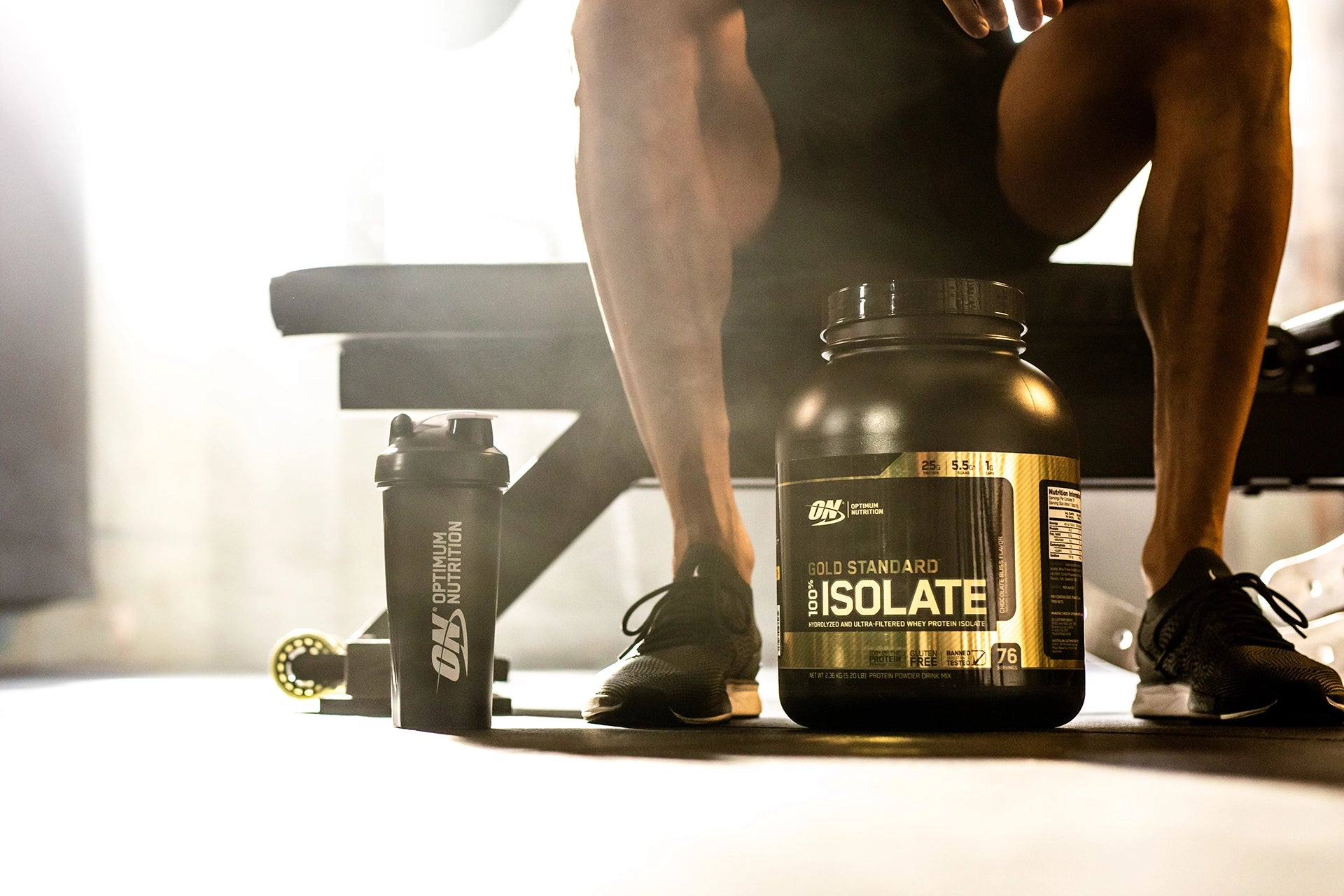In the pursuit of fitness goals, recovery is often as crucial as the workout itself. Whether you're a seasoned athlete or just starting your fitness journey, understanding the significance of muscle recovery supplements can make a substantial difference in achieving your desired results. Let's delve into the realm of muscle recovery and explore the best supplements to aid in faster repair and rejuvenation.

Understanding Muscle Recovery
Before we dive into the world of supplements, it's essential to grasp the fundamentals of muscle recovery. When you engage in physical activity, especially strength training or high-intensity exercises, your muscle fibres undergo stress and micro-tears. This process, although necessary for muscle growth and strength, can lead to soreness and fatigue.
Muscle recovery occurs during periods of rest and is characterised by the repair and regeneration of damaged muscle fibres. During this phase, the body synthesises new proteins and reinforces existing muscle tissue, leading to increased strength and resilience.
The Role of Nutrition in Recovery
Nutrition plays a pivotal role in facilitating muscle repair and replenishment. While a balanced diet rich in protein, carbohydrates, and healthy fats lays the foundation for recovery, supplementation can offer targeted support to accelerate the process.
Protein is particularly important for muscle repair, as it provides the essential amino acids necessary for synthesising new muscle tissue. Incorporating protein-rich foods such as lean meats, poultry, fish, eggs, dairy products, legumes, and tofu into your diet can support post-exercise recovery.
Key Supplements for Muscle Recovery
- Protein Supplements: Protein supplements, such as whey protein, casein protein, and plant-based protein powders, are convenient sources of high-quality protein. Consuming protein shakes or smoothies post-workout can deliver a rapid influx of amino acids to fuel muscle repair and growth.
- Branch-Chain Amino Acids (BCAAs): BCAAs, including leucine, isoleucine, and valine, are essential amino acids that cannot be produced by the body and must be obtained through diet or supplementation. BCAA supplements are known for their ability to stimulate protein synthesis and reduce muscle protein breakdown, making them a popular choice for promoting muscle recovery and preserving lean muscle mass.
- Creatine: Creatine is a naturally occurring compound found in small amounts in foods like meat and fish. It works by replenishing ATP stores, the primary energy currency of cells, which can become depleted during high-intensity exercise. By increasing ATP availability, creatine supplementation can enhance muscular strength and power, leading to improved performance and faster recovery between bouts of exercise.
- Glutamine: Glutamine is the most abundant amino acid in the body and plays a vital role in various physiological processes, including immune function and protein synthesis. During periods of intense physical activity, glutamine levels may become depleted, leading to impaired immune function and delayed recovery. Supplementing with glutamine can help replenish intramuscular glutamine stores, reduce exercise-induced muscle damage, and enhance recovery following strenuous exercise.

What Is the Best Supplement for Fast Muscle Recovery?
The quest for the best supplement for fast muscle recovery often leads to varying opinions and preferences. However, a combination of protein supplements, BCAAs, and creatine is widely regarded as an effective stack for promoting rapid muscle repair and growth.
In addition to supplementation, other factors such as adequate hydration, sufficient sleep, and proper training techniques play crucial roles in optimising recovery and maximising performance gains. It's essential to prioritise individual needs and preferences when selecting supplements and tailor your regimen accordingly.
Lifestyle Factors That Enhance Muscle Recovery
In addition to supplementation, several lifestyle factors can contribute to enhanced muscle recovery:
- Adequate Sleep: Quality sleep is essential for muscle repair and growth. During sleep, the body enters a state of rest and repair, during which growth hormone levels peak, and tissue repair processes are activated. Aim for 7-9 hours of uninterrupted sleep each night to optimise recovery and promote overall well-being.
- Hydration: Staying hydrated is critical for maintaining optimal muscle function and facilitating nutrient transport. Dehydration can impair exercise performance and prolong recovery times. Aim to drink plenty of water throughout the day, especially during and after exercise, to replace fluids lost through sweat and support cellular hydration.
- Active Recovery: Incorporating light exercises, such as yoga, swimming, or cycling, on rest days can improve blood circulation, alleviate muscle stiffness, and promote faster recovery. Active recovery activities help flush out metabolic by-products, such as lactic acid, and stimulate blood flow to facilitate nutrient delivery to muscles, enhancing recovery and reducing soreness.
What Helps Muscle Recover Faster?
Several strategies can aid in accelerating muscle recovery:
- Optimal Nutrition: Ensure your diet is rich in protein, carbohydrates, and micronutrients to support muscle repair and replenishment. Consume a balanced mix of whole foods, including lean proteins, complex carbohydrates, healthy fats, fruits, and vegetables, to provide your body with the necessary nutrients for recovery and growth.
- Supplementation: In addition to a well-rounded diet, incorporating targeted supplements such as protein powders, BCAAs, creatine, and glutamine protein powders, BCAAs, creatine, and glutamine can provide your muscles with the essential nutrients they need to recover and grow. Consult with a healthcare professional or registered dietitian to determine the most appropriate supplements for your individual needs and goals.
- Consistent Training: Consistency is key to adaptation and recovery. Stick to a structured workout routine that allows for adequate rest and recovery between sessions. Avoid overtraining by incorporating rest days, active recovery sessions, and reload weeks into your training program to prevent burnout and promote long-term progress.
- Listen to Your Body: Pay attention to signs of fatigue, soreness, and injury, and adjust your training intensity and volume accordingly. Listen to your body's signals and give yourself permission to rest and recover when needed. Pushing through pain or ignoring warning signs of overtraining can lead to injury and setbacks, hindering your progress in the long run.
In conclusion, the journey to faster muscle recovery encompasses a multifaceted approach, encompassing nutrition, supplementation, and lifestyle habits. By incorporating the right recovery supplements, adopting conducive recovery practices, and prioritising self-care, you can unlock the power of recovery and maximise your fitness gains.




Leave a comment (all fields required)